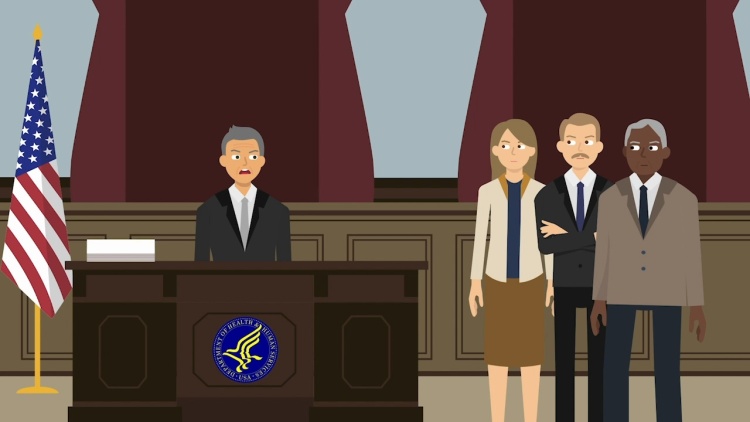Schweiker v. McClure
United States Supreme Court
456 U.S. 188 (1982)
- Written by Kathryn Lohmeyer, JD
Facts
William McClure (plaintiff) filed a claim for medical reimbursement under Part B of Medicare, which provided insurance coverage to seniors and the disabled. Part B did not require a showing of financial need and was administered by private insurance carriers with federal subsidization. After his claim was denied, McClure requested a hearing before the insurance carrier to challenge the denial. Hearing officers were typically selected by the carrier, and some hearing officers would be former or current employees of the carrier. Hearing officers were qualified and had thorough knowledge of Medicare programs and the relevant law. A hearing officer’s decision was not subject to any further review. Following an adverse decision by a hearing officer on his Part B claim, McClure brought a class-action suit against Secretary of Health and Human Services Richard Schweiker (Secretary) (defendant) in federal district court, arguing that the hearing violated the Due Process Clause. Both parties moved for summary judgment. The district court concluded that the Part B hearing procedures were unconstitutional for two reasons: (1) the close ties between the hearing officers and the insurance carriers posed too great of a risk of bias against claimants, and (2) due-process considerations weighed in favor of providing a hearing before one of the Secretary’s administrative law judges (ALJs). The district court held that the class members were entitled to new hearings before an ALJ. The Secretary appealed to the United States Supreme Court, which noted probable jurisdiction.
Rule of Law
Issue
Holding and Reasoning (Powell, J.)
What to do next…
Here's why 907,000 law students have relied on our case briefs:
- Written by law professors and practitioners, not other law students. 47,100 briefs, keyed to 996 casebooks. Top-notch customer support.
- The right amount of information, includes the facts, issues, rule of law, holding and reasoning, and any concurrences and dissents.
- Access in your classes, works on your mobile and tablet. Massive library of related video lessons and high quality multiple-choice questions.
- Easy to use, uniform format for every case brief. Written in plain English, not in legalese. Our briefs summarize and simplify; they don’t just repeat the court’s language.





